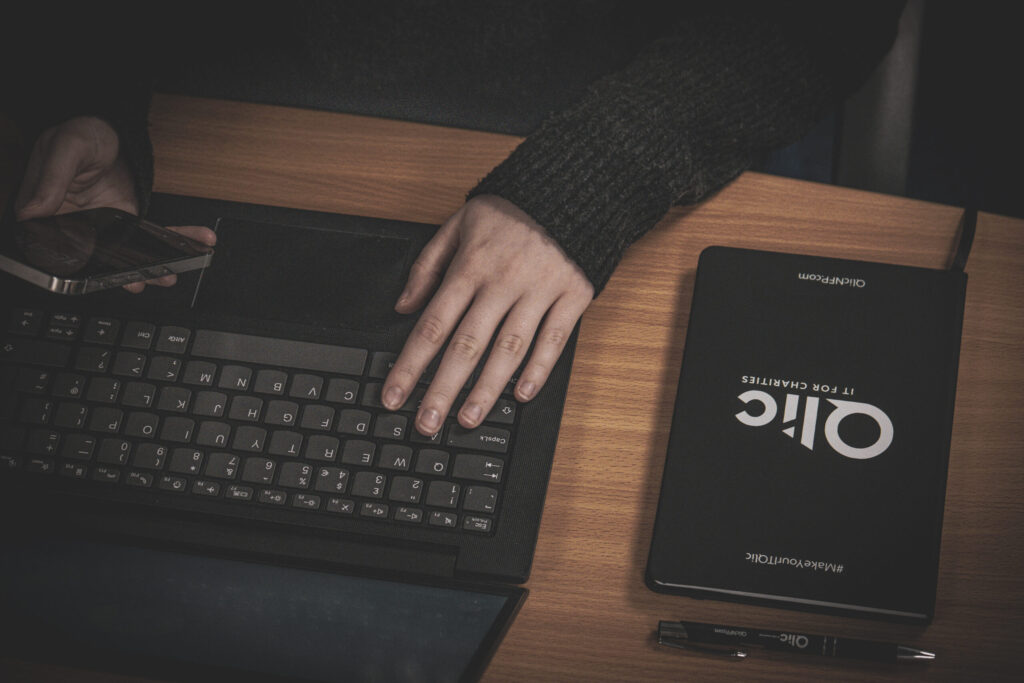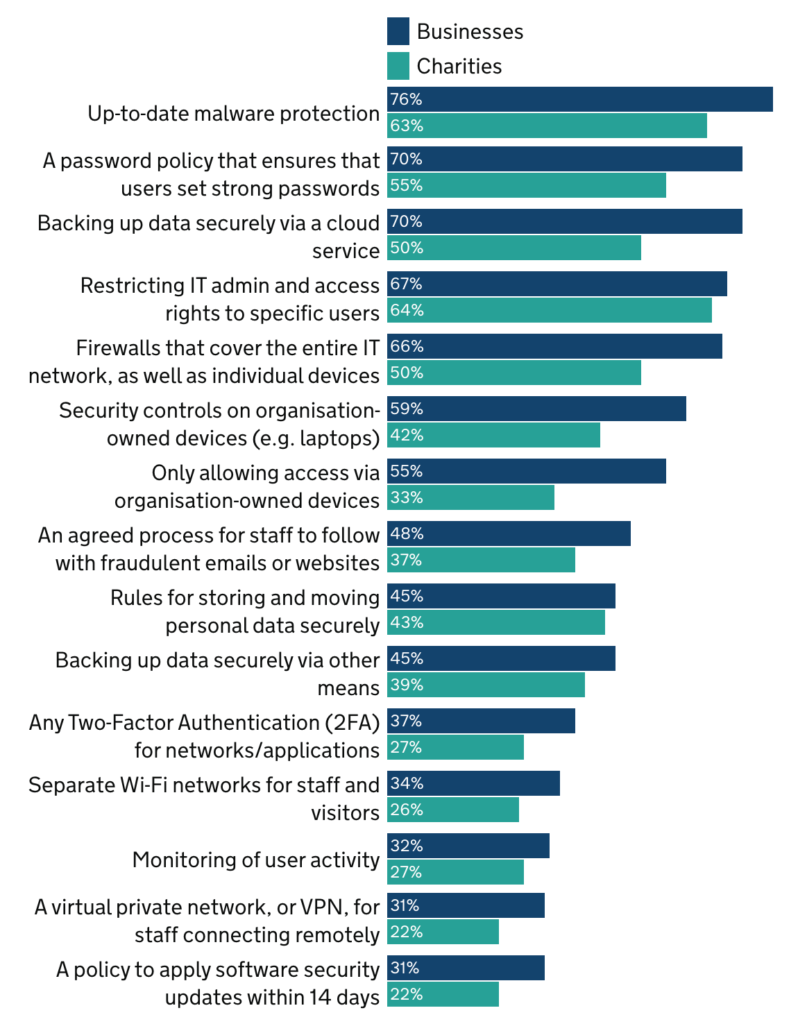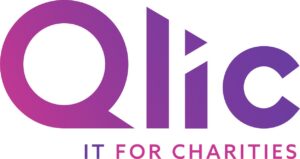In an increasingly digital world, the significance of cyber security and device management for charities is more crucial than ever before. Charities are becoming more reliant on technology to carry out their operations. However, this also makes them a prime target for cyber criminals.
A concerning survey conducted in 2023 revealed that 32% of businesses and a significant 24% of charities fell victim to cyber security breaches or attacks in the preceding 12 months. This statistic highlights the urgent need for charities to adopt robust cyber security measures and efficient device management systems. These are crucial for protecting sensitive data and maintaining operational continuity. This also helps to preserve the trust and confidence of donors, beneficiaries, and the general public.
Find out more about why every charity should be using 2fa.

What does 2FA mean?
Two-Factor Authentication (2FA) is a security measure designed to provide an additional layer of protection for your accounts. It’s an extra step to ensure that you’re the only person who can access your accounts, even if someone else happens to guess your password. It also is included in the wider topic of multi-factor authentication (MFA).
The concept of 2FA revolves around verifying a user’s identity using two distinct methods from the following three categories:
- Something You Know: This is typically something that only you would know, like a password, PIN number, or answers to security questions. Generally, this would be information that is stored in your mind or a secure password application. In essence, it is something not easily accessible to others.
- Something You Have: This can be a physical object in your possession, such as a smartphone, which can receive a verification code or a security token that generates a unique login code.
- Something You Are: This involves biometric data that’s unique to you, such as your fingerprint or facial recognition. Since these are inherent characteristics, they’re nearly impossible for someone else to replicate.
By combining two of these methods, 2FA creates a mechanism that significantly reduces the risk of unauthorised access to your accounts. This will enhance the overall security of your digital presence. 2FA has now become crucial for charities that handle donor personal details and need to maintain the trust and confidentiality of their stakeholders.
For example, charities often rely on staff and volunteers to work remotely or under hybrid conditions. This then places a greater emphasis on their laptop security. Logging in via a username and password is simply not secure enough in these instances. This is where 2FA would be essential.
Why 2FA Matters for Charities
Cyber security for charities is particularly important as they collect and manage a significant volume of sensitive data. This data usually relates to donors, beneficiaries, and other stakeholders. This data is not only critical to their day-to-day operations but also holds immense value for cyber criminals.
The consequences of data breaches for charities are worrying. You have the immediate financial losses associated with rectifying the breach, potential legal implications, as well as the potential harm to the charity’s reputation. Trust is something that the charity sector relies on. Just one breach could seriously undermine the confidence of donors, beneficiaries, and the wider public.
It appears that not enough charities are currently implementing 2FA. Given the complexity and frequency of cyber attacks, charities must understand and enforce 2FA to safeguard their operations and the valuable data they hold.
The Cyber security breaches survey 2023 below shows that two-factor authentication (2FA) is among the least common rules and controls being deployed by businesses (37%) and charities(27%).

The Benefits of 2FA for Charities
2FA for charities offers numerous benefits, helping them secure their sensitive information and maintain trust with their stakeholders. Here are the top five benefits:
- Protection from Unauthorised Access: 2FA adds an extra layer of security that makes it significantly harder for unauthorised users to access your accounts. Even if a password is compromised, the second authentication factor would still need to be bypassed. This provides a great barrier and deterrent for cyber criminals.
- Defending Against Phishing Attacks: Phishing attacks have increased significantly within the last year. 2FA can help mitigate this cyber attack as even if an attacker obtains a user’s password, they won’t have the second authentication factor.
- Mitigating Password Weakness: Passwords can often be a weak link, as users may choose easy to remember passwords or reuse the same ones. With 2FA, even if your password is cracked, the second authentication step provides an additional line of defence.
- Enhanced Privacy Protection: Charities handle an abundance of sensitive data, including donor details and beneficiary information. By using 2FA, you can ensure this data remains secure and maintain the trust of your charity’s stakeholders and beneficiaries.
- Regulatory Compliance: Many regulations including the General Data Protection Regulation (GDPR) require organisations to take measures to safeguard personal data. Implementing 2FA can demonstrate a charity’s commitment to data security and help them meet these regulatory requirements. The synergy between data protection and charities is paramount, underscoring the need to take every necessary step to guarantee the security and safeguarding of data.

Implementing 2FA for Your Charity
Implementing 2FA for all stakeholders within your charity is a great step to enhance your digital security. Here are the main points to consider when implementing 2FA:
- Assess Your Current Systems: Before you implement 2FA, your charity needs to analyse the existing cyber security landscape. This is done by looking into the current systems and data that are most vulnerable or valuable and would benefit from having a dual defence. This could include email systems, operating systems, databases of donor information and financial systems.
- Choose the Right 2FA Methods: There are several types of 2FA, including SMS codes, app notifications, and hardware tokens. App notifications are deemed the most secure way of using 2FA and should be considered when choosing the right method.
- Educate Your Staff: 2FA for charities should be introduced to your staff and volunteers through training sessions that explain the importance of 2FA and provide clear instructions on how to use it efficiently.
- Test and Monitor: Once your charity has implemented 2FA, it’s important to monitor its effectiveness and resolve any issues that arise promptly. Regular testing can help identify potential vulnerabilities and ensure the system is working as expected.
- Enforce 2FA Policies: Make sure to explain how 2FA is mandatory for all charity staff, especially those who have access to sensitive data. Your charity could implement policies that support the use of 2FA and establish consequences for non-compliance.
Final Thoughts
Two-Factor Authentication (2FA) is one of many critical cyber security solutions for charities. Both this and Multi Factor Authentication (MFA) offer multiple benefits for charity organisations. This includes defence against phishing attacks and unauthorised access, mitigation of password weakness and enhanced privacy protection. Implementing 2FA is a quick and easy process that will enhance your charity’s digital security.
Working with a solutions partner like Qlic IT can significantly streamline this process. As cyber security experts, we have the knowledge and experience to assess your organisation’s unique needs and recommend the 2FA methods that are best-suited to your needs. We can also assist with the technical aspects of implementation, monitoring and after-support.
Get a Free Consultation
At Qlic, we specialise in assessing and improving cyber security for charities. For more information on 2FA and how you can better protect your charity from cyber attacks, book a FREE Cyber Security consultation below.






